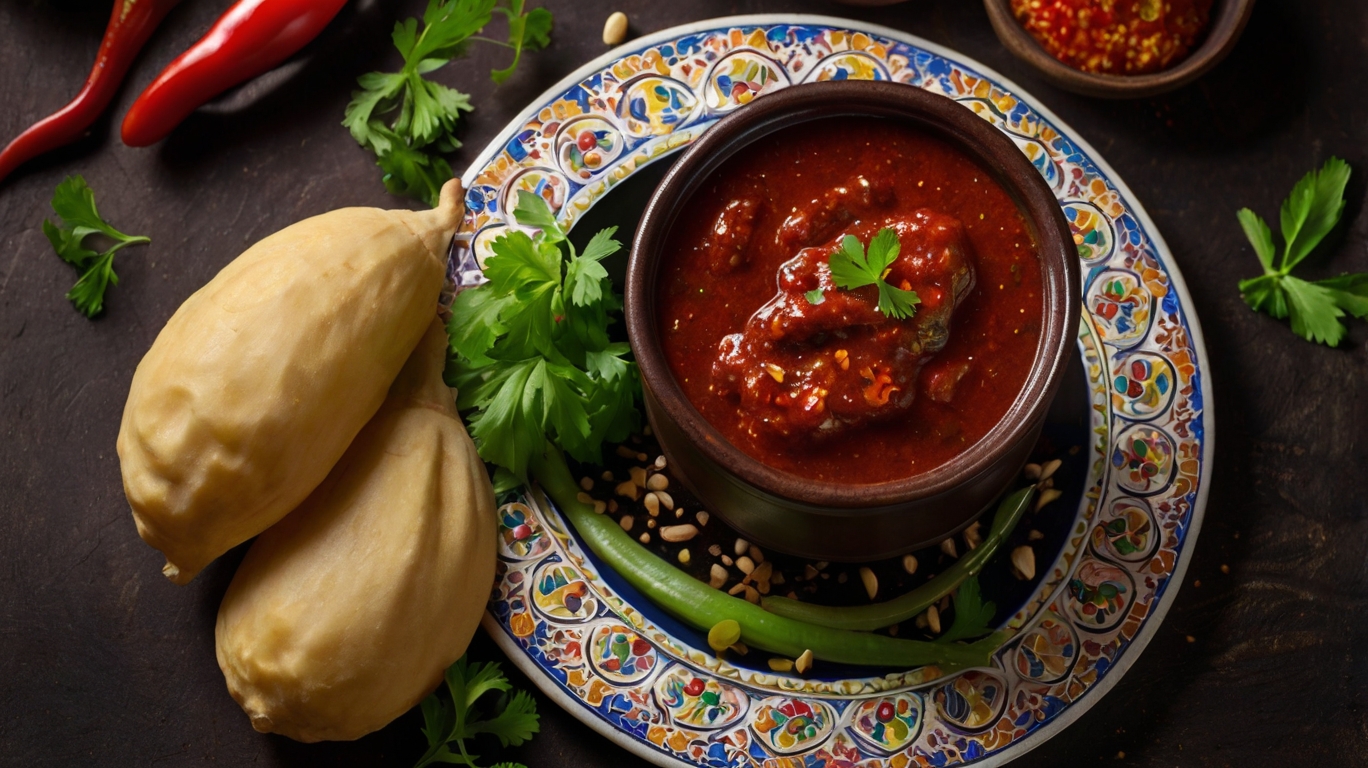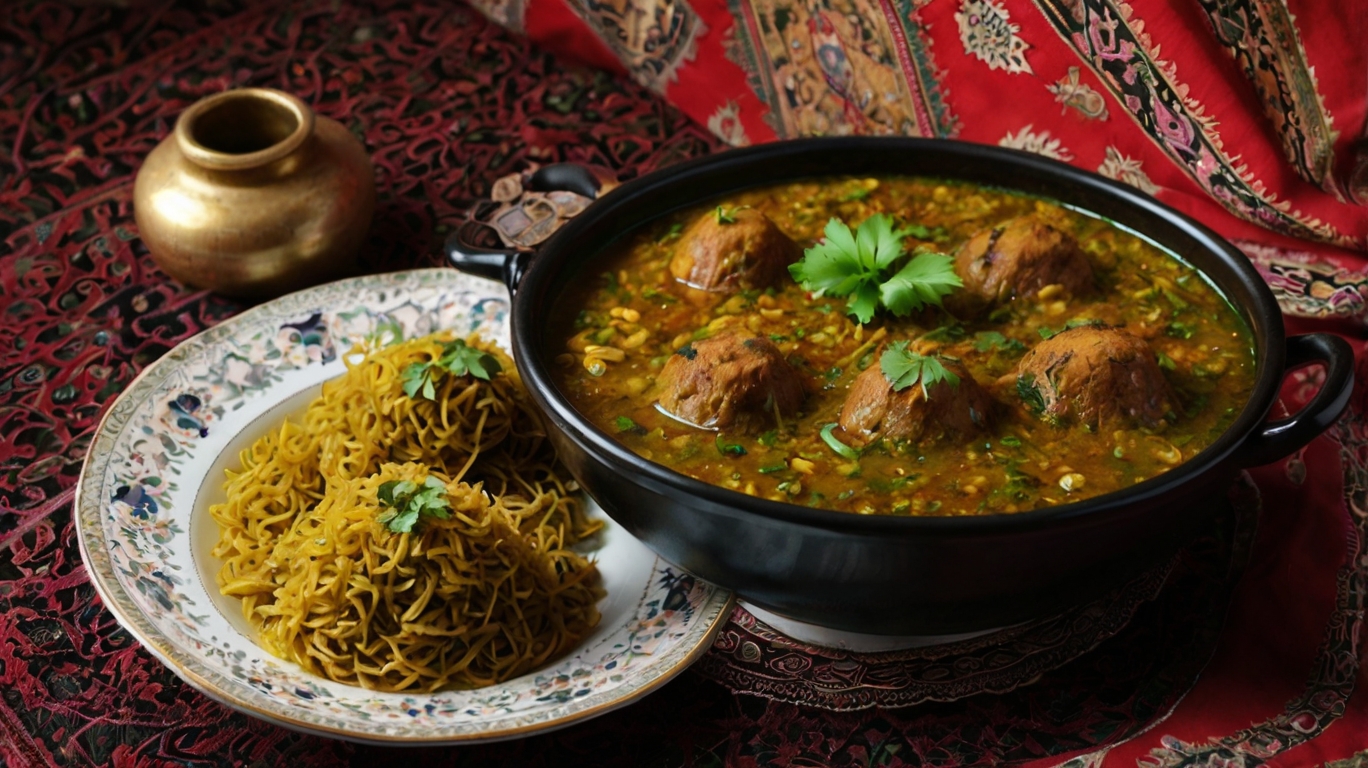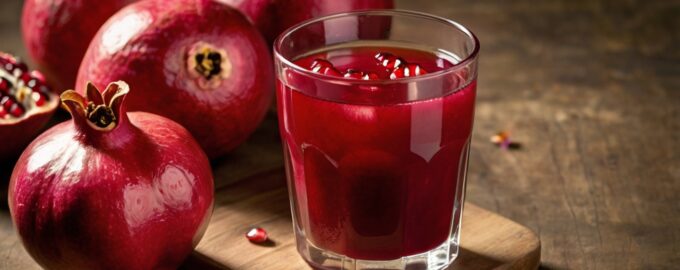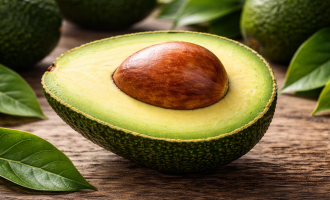Rich Composition of Pomegranate
This amazing fruit contains a true treasure trove of beneficial substances. It includes B, C, E, and K vitamins, as well as essential minerals: potassium, magnesium, calcium, phosphorus, and iron. Of particular value are the unique antioxidants – punicalagins, which are not found in other fruits.
| Component | Amount |
|---|---|
| Calories | 83 kcal |
| Proteins | 1.7 g |
| Fats | 1.2 g |
| Carbohydrates | 18.7 g |
| Dietary Fiber | 4 g |
| Vitamin C | 10.2 mg |
| Calcium | 10 mg |
| Magnesium | 12 mg |
| Phosphorus | 36 mg |
| Potassium | 236 mg |
| Iron | 0.3 mg |
| Antioxidants | High content |
Healing Properties
Modern science confirms the centuries-old knowledge of the benefits of pomegranate. Regular consumption of this fruit helps to:
- Strengthen the cardiovascular system
Pomegranate reduces the risk of blood clots, normalizes blood pressure, and improves blood composition. - Support immunity
High vitamin C and antioxidant content enhances the body’s defense mechanisms. - Improve memory and concentration
Pomegranate antioxidants protect brain cells from aging. - Normalize digestion
Pomegranate has anti-inflammatory properties and helps maintain a healthy gut microbiome.
Recommended Intake
The optimal daily portion is considered to be 100–200 grams of pomegranate seeds. It is best consumed in the first half of the day, on an empty stomach or between meals. Pomegranate juice is recommended to be diluted with water in a 1:1 ratio.
Who Benefits Most from Pomegranate
- People with anemia;
- Individuals with cardiovascular diseases;
- Those with weakened immunity;
- During recovery after illness;
- Athletes and people with high physical activity.
Contraindications
Despite its benefits, pomegranate has some contraindications. It is not recommended for consumption:
- In cases of stomach ulcers;
- With high acidity;
- In case of individual intolerance;
- In large amounts for people with dental enamel problems.
Pomegranate in Cuisine
This fruit is widely used in the cuisines of different countries. Famous dishes with pomegranate include:
- Narsharab Sauce
Traditional Azerbaijani sauce made from pomegranate juice, served with meat and fish.

- Fesenjan
Iranian dish with poultry, walnuts, and pomegranate sauce.

- Pomegranate Dessert Eden
Israeli dessert with yogurt and pomegranate seeds.

How to Choose and Store
When choosing a pomegranate, pay attention to the following signs:
- The fruit should be heavy for its size;
- The skin should be free of damage and spots;
- It should produce a metallic sound when tapped;
- It should have a characteristic angular shape.
Pomegranates can be stored at room temperature for up to two weeks, and in the refrigerator – up to two months.
Interesting Facts
- In some countries, pomegranate is considered a symbol of fertility;
- The shape of the royal crown was inspired by the shape of the pomegranate;
- Pomegranate juice was used to dye fabrics;
- In ancient times, pomegranate juice was used as a natural remedy for many ailments.
Consumption Recommendations
To get the maximum benefit from pomegranate:
- Consume fresh fruits;
- Do not drink it with other beverages;
- Avoid combining with dairy products;
- Dilute the juice with water;
- Use freshly squeezed juice within 15 minutes.
History and Legends
Since ancient times, pomegranate has been considered a sacred fruit. According to Greek mythology, it was the pomegranate that linked Persephone with the underworld of Hades. After eating a few pomegranate seeds in the underworld, she was forced to return there every year, which, according to legend, became the reason for the changing seasons. In ancient Egypt, pomegranates were placed in pharaohs’ tombs as a symbol of eternal life, and in Christianity, they became a symbol of resurrection.
Pomegranate is not just a delicious fruit, but a real natural pharmacy. When consumed properly, it can be an effective helper in strengthening health and preventing many diseases. However, remember the contraindications and follow the recommended intake.
Frequently Asked Questions About Pomegranate
What are the unique antioxidants found in pomegranate?
Pomegranate contains punicalagins, unique antioxidants that help protect cells from oxidative stress and aging.
Is pomegranate safe for people with diabetes?
Pomegranate has natural sugars, so it can be consumed in moderation while monitoring blood glucose levels.
How does pomegranate benefit digestion and gut health?
Its anti-inflammatory properties support a healthy gut microbiome and improve overall digestion.
What is the difference between pomegranate seeds and juice?
Juice is quickly absorbed and rich in antioxidants, while seeds provide dietary fiber that aids digestion.
How should pomegranate be combined with other foods?
It is best consumed alone or diluted with water and should not be combined with dairy to optimize nutrient absorption.
Can pomegranate be frozen for storage?
Yes, seeds can be frozen for up to six months, retaining most vitamins and antioxidants, though texture may change after thawing.
Does pomegranate improve brain function?
Its antioxidants protect brain cells, enhance memory and concentration, and help slow down cognitive aging.
Can pomegranate help with anemia?
Rich in iron and folate, pomegranate can support hemoglobin levels and assist in managing anemia.







